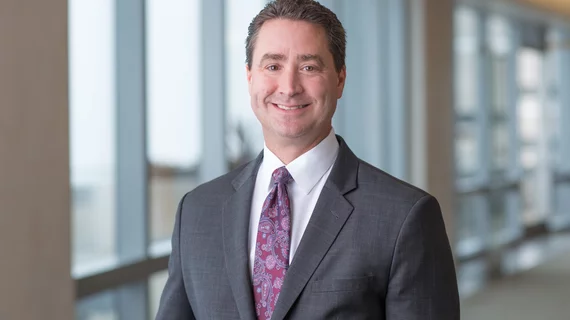Cedars-Sinai names a new CFO
Cedars-Sinai Health System has promoted David Wrigley to executive vice president and CFO, the California health system announced.
Wrigley succeeds Edward M. Prunchunas, who is retiring after 41 years with Cedars-Sinai. Wrigley will also serve as treasurer, as well as secretary of the finance and investment committees of the Cedars-Sinai Medical Center Board of Directors.
Wrigley originally joined Cedars-Sinai in 2014 as vice president of finance, leading initiatives for the health system’s financial operations and contributing toward growth. He currently serves as senior vice president of finance and CFO for Cedars-Sinai Medical Center and Huntington Health, where he develops unified systems for financial reporting and collaborations across the health system.
In his new role, Wrigley will have broad oversight for financial planning and report, revenue cycle, treasury, financial operations, capital structure/planning, risk management, corporate compliance and new financial ventures.
“David is a highly effective leader and a strong advocate for our health system and its employees," Thomas M. Priselac, president and CEO of Cedars-Sinai, said in a statement. "We are fortunate to have a leader of his caliber with deep knowledge of healthcare finance."
Prior to joining Cedars-Sinai, Wrigley served in several financial management positions, including leadership roles at the largest Catholic health system in Illinois. He also managed the healthcare practice at KPMG.
Cedars-Sinai is a nonprofit academic healthcare organization serving Southern California. Cedars-Sinai Medical Center in Los Angeles has been named one of the top hospitals in the United States for many years.

